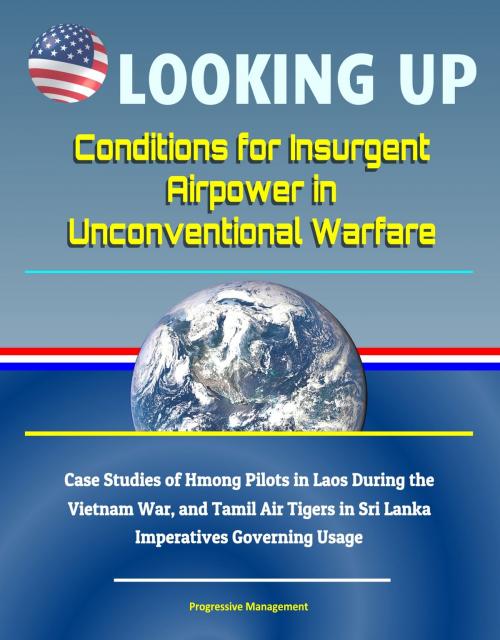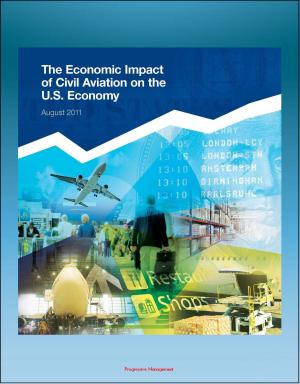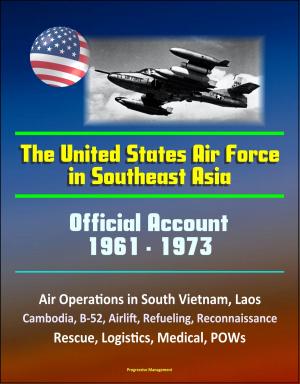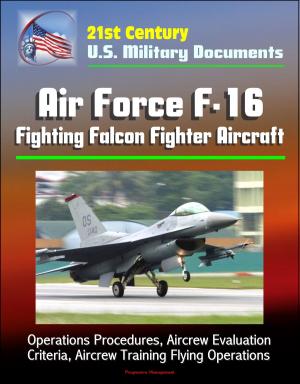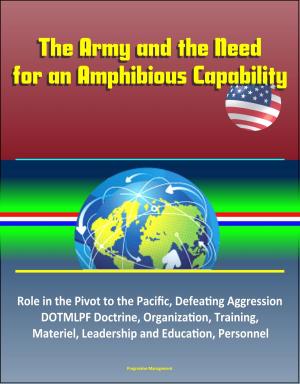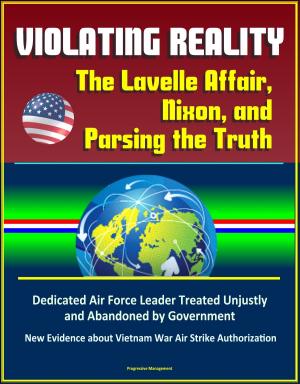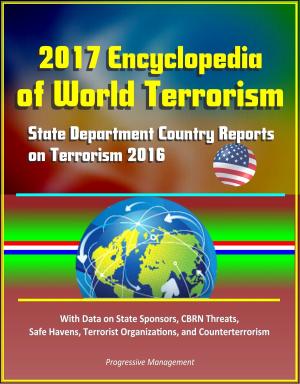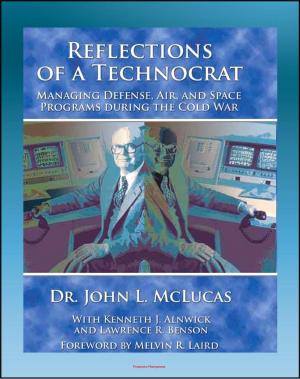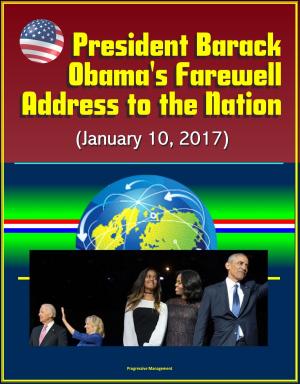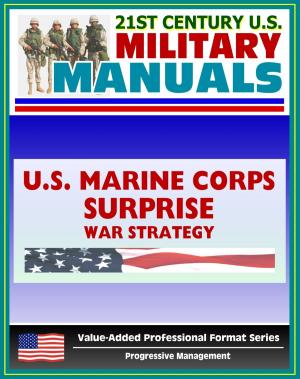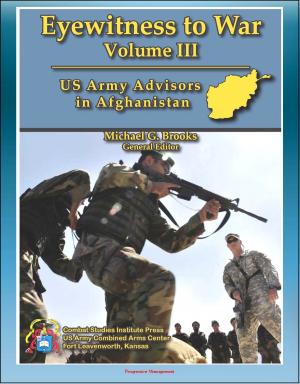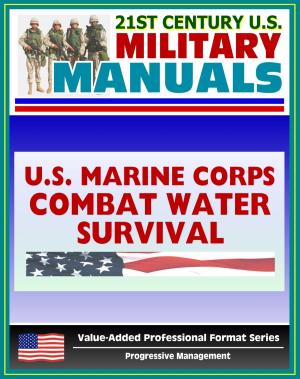Looking Up: Conditions for Insurgent Airpower in Unconventional Warfare - Case Studies of Hmong Pilots in Laos During the Vietnam War, and Tamil Air Tigers in Sri Lanka, Imperatives Governing Usage
Nonfiction, History, Military, Vietnam War, Asian, Aviation| Author: | Progressive Management | ISBN: | 9780463882443 |
| Publisher: | Progressive Management | Publication: | July 10, 2018 |
| Imprint: | Smashwords Edition | Language: | English |
| Author: | Progressive Management |
| ISBN: | 9780463882443 |
| Publisher: | Progressive Management |
| Publication: | July 10, 2018 |
| Imprint: | Smashwords Edition |
| Language: | English |
This important December 2017 report has been professionally converted for accurate flowing-text e-book format reproduction.
Unconventional warfare (UW) is an operational concept the United States utilizes to enable resistance movements or insurgencies to coerce or overthrow a government or occupying power. The concept has historically involved the employment of U.S. advisors to increase insurgent capabilities on the ground to combat an enemy government's forces. However, though military doctrine also mentions the development of insurgent air capabilities, it does not expound on the idea. This study examines the conditions needed to build an insurgent air capability and the principles that should guide the employment of that capability. Using military doctrine and other relevant literature to merge principles of UW, insurgencies, and air operations, the study forms theorized conditions and employment imperatives for insurgent air. It then tests these theorized conditions and imperatives against two historic case studies, Hmong pilots in Laos and the Tamil Air Tigers in Sri Lanka. This study concludes that there are four conditions that the United States should consider prior to developing an insurgent air capability and two imperatives that should govern the employment of that capability.
I. BACKGROUND AND FRAMING * A. INTRODUCTION TO THE STUDY * B. THE PROBLEM * C. PURPOSE AND SCOPE * D. RESEARCH QUESTION * E. LITERATURE REVIEW: INTRODUCING THE TERMS AND CONCEPTS * 1. Resistance Movements and Insurgencies * 2. Introduction to Unconventional Warfare and Its Necessary Conditions * 3. Review of Insurgent Airpower * 4. Review of Air Operations * 5. Summary * F. DEVELOPMENT OF CONDITIONS AND IMPERATIVES * G. METHODOLOGY * H. LIMITATIONS TO THE STUDY * II. CASE STUDY: LAOS AND OPERATION WATERPUMP * A. INTRODUCTION * B. THE SITUATION IN LAOS * C. BACKGROUND ON THE INSURGENCY * D. GENERAL INSURGENT AVIATION DEVELOPMENT * E. GENERAL INSURGENT AVIATION EMPLOYMENT * F. THEORIZED AIR UW CONDITIONS AND IMPERATIVES ANALYSIS * III. CASE STUDY: THE TAMIL TIGERS * A. INTRODUCTION * B. THE SITUATION IN SRI LANKA * C. BACKGROUND ON THE INSURGENCY * D. GENERAL INSURGENT AVIATION DEVELOPMENT * E. GENERAL INSURGENT AVIATION EMPLOYMENT * F. THEORIZED AIR UW CONDITIONS AND IMPERATIVES ANALYSIS * IV. CONCLUSIONS * A. INTRODUCTION * B. RESTATED RESEARCH QUESTION * C. RESTATED LIMITATIONS TO THE STUDY * D. THEORIZED CONDITION 1 * E. THEORIZED CONDITION 2 * F. THEORIZED CONDITION 3 * G. THEORIZED CONDITION 4 * H. THEORIZED CONDITION 5 * I. THEORIZED IMPERATIVE 1 * J. THEORIZED IMPERATIVE 2 * K. CONCLUSION * L. NOTEWORTHY OBSERVATIONS * M. AREAS OF FUTURE STUDY
This important December 2017 report has been professionally converted for accurate flowing-text e-book format reproduction.
Unconventional warfare (UW) is an operational concept the United States utilizes to enable resistance movements or insurgencies to coerce or overthrow a government or occupying power. The concept has historically involved the employment of U.S. advisors to increase insurgent capabilities on the ground to combat an enemy government's forces. However, though military doctrine also mentions the development of insurgent air capabilities, it does not expound on the idea. This study examines the conditions needed to build an insurgent air capability and the principles that should guide the employment of that capability. Using military doctrine and other relevant literature to merge principles of UW, insurgencies, and air operations, the study forms theorized conditions and employment imperatives for insurgent air. It then tests these theorized conditions and imperatives against two historic case studies, Hmong pilots in Laos and the Tamil Air Tigers in Sri Lanka. This study concludes that there are four conditions that the United States should consider prior to developing an insurgent air capability and two imperatives that should govern the employment of that capability.
I. BACKGROUND AND FRAMING * A. INTRODUCTION TO THE STUDY * B. THE PROBLEM * C. PURPOSE AND SCOPE * D. RESEARCH QUESTION * E. LITERATURE REVIEW: INTRODUCING THE TERMS AND CONCEPTS * 1. Resistance Movements and Insurgencies * 2. Introduction to Unconventional Warfare and Its Necessary Conditions * 3. Review of Insurgent Airpower * 4. Review of Air Operations * 5. Summary * F. DEVELOPMENT OF CONDITIONS AND IMPERATIVES * G. METHODOLOGY * H. LIMITATIONS TO THE STUDY * II. CASE STUDY: LAOS AND OPERATION WATERPUMP * A. INTRODUCTION * B. THE SITUATION IN LAOS * C. BACKGROUND ON THE INSURGENCY * D. GENERAL INSURGENT AVIATION DEVELOPMENT * E. GENERAL INSURGENT AVIATION EMPLOYMENT * F. THEORIZED AIR UW CONDITIONS AND IMPERATIVES ANALYSIS * III. CASE STUDY: THE TAMIL TIGERS * A. INTRODUCTION * B. THE SITUATION IN SRI LANKA * C. BACKGROUND ON THE INSURGENCY * D. GENERAL INSURGENT AVIATION DEVELOPMENT * E. GENERAL INSURGENT AVIATION EMPLOYMENT * F. THEORIZED AIR UW CONDITIONS AND IMPERATIVES ANALYSIS * IV. CONCLUSIONS * A. INTRODUCTION * B. RESTATED RESEARCH QUESTION * C. RESTATED LIMITATIONS TO THE STUDY * D. THEORIZED CONDITION 1 * E. THEORIZED CONDITION 2 * F. THEORIZED CONDITION 3 * G. THEORIZED CONDITION 4 * H. THEORIZED CONDITION 5 * I. THEORIZED IMPERATIVE 1 * J. THEORIZED IMPERATIVE 2 * K. CONCLUSION * L. NOTEWORTHY OBSERVATIONS * M. AREAS OF FUTURE STUDY
